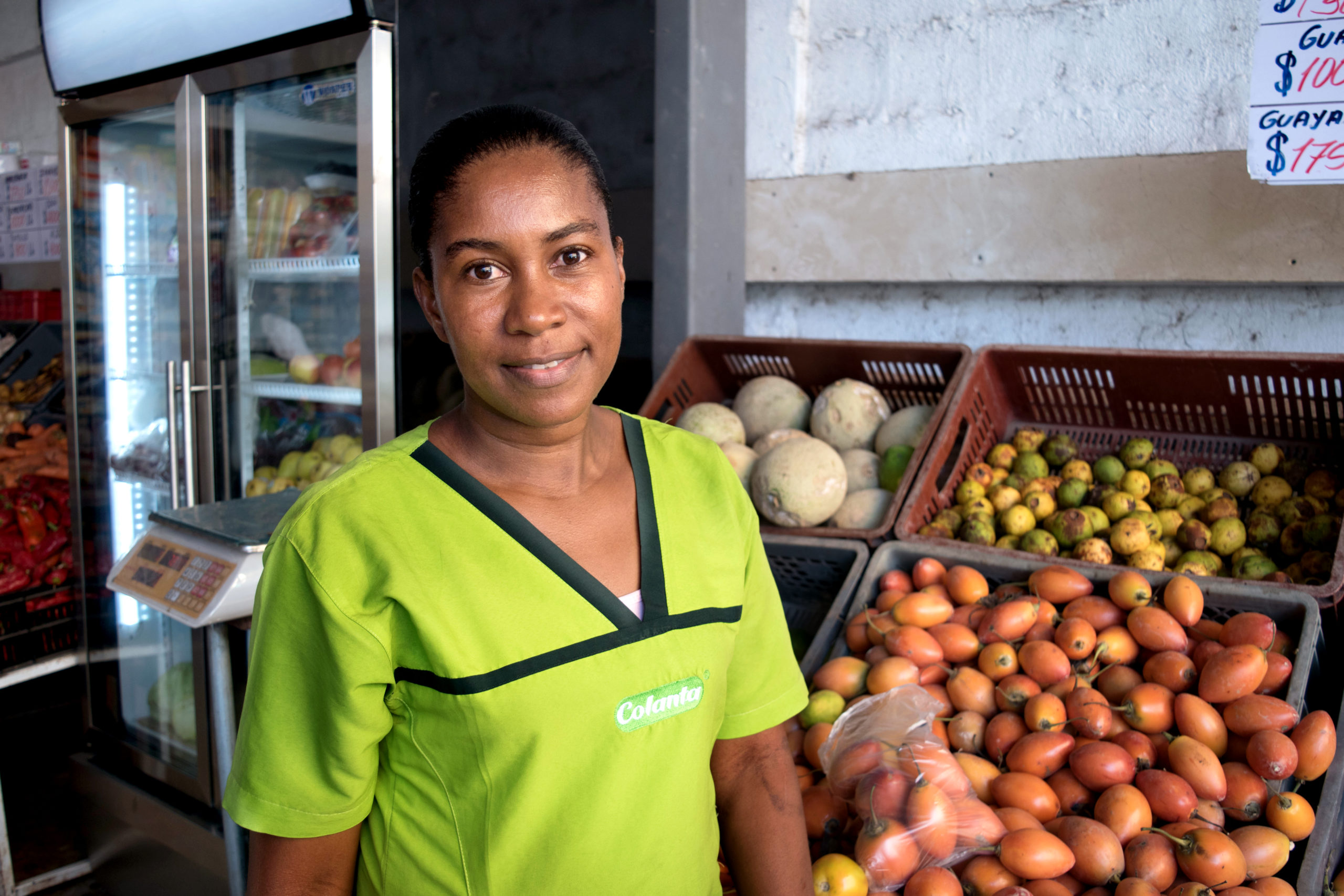Young women in Colombia adversely impacted by the economic crisis from COVID-19
News

Bogota, April 8, 2021. While the economic crisis triggered by the COVID-19 pandemic has harmed national employment in Colombia, its impact has been particularly devastating for youth and young women in the country, according to a new study released today by Cuso International and supported by the Government of Canada.
Based on data from the Gran Encuesta Integrada (GEIH) of the Departamento Administrativo Nacional de Estadística (Dane) – the National Administrative Department of Statistics – Cuso International analysed the labour situation of urban youth in Colombia, with emphasis on the 7,120,000 young urban/low-income earners.
The findings indicate that young women have been the most disadvantaged through this period. Unemployment for them jumped to 34 per cent, an 11 per cent increase from the prior year. The pandemic has also seen a widening of the gender gap, with unemployment among young women 15 per cent higher than that of young men.
Colombia is not an isolated case in the region. A report by the Economic Commission for Latin America and the Caribbean (ECLAC) confirmed that as a result of the COVID-19 pandemic, the progress made in women’s employment and working conditions in Latin America and the Caribbean was set back by more than a decade. *
The Cuso International study also sheds light on the deteriorating working conditions of poor youth. Nearly 42 per cent of unemployed youth in the lowest socio-economic level reported having lost their job or source of income because of the pandemic. In addition, 32 per cent reported the impossibility of looking for or starting a business.
“The current challenging economic situation has affected the young poor people in cities, who have the greatest difficulties to enter the labour market and, at the same time, are the first to lose their jobs in the crisis,” says Alejandro Matos, Director of Cuso International in Colombia.
To regulate the negative effects on the economic crisis, Cuso International recommends that an extension of the Formal Employment Support Program (Programa de Apoyo al Empleo Formal) specific benefits for young employees, similar to those established for women.
Reduction of income in recent years
Although the economic crisis of COVID-19 accelerated an unfavourable labour situation of the poor urban youth, in reality, labour instability of this population has remained high over the last three years. The unemployment rate among the poorest youth rose from 19 per cent in 2017 to 26 per cent in 2020 (as of October 2020), while that of those in a slightly higher socio-economic bracket went from 18 per cent in 2017 to 28 per cent in the past year, an increase of almost 10 per cent.
Additionally, some have also experienced a reduction in in their salaries. While in 2017,
35 per cent of young salaried people in the low strata earned less than the minimum wage, this indicator has risen to 44 per cent in 2020.
The same is true for self-employed young people: in 2017, 67 per cent earned less than the minimum wage, and rose to 77 per cent in 2020.
Those most affected appear to be those who earn their living in education, health, leisure, cultural services, cleaning services provided to individuals and households, and domestic services. In 2017, 31 out of every100 jobs was recruited from this this sector. In 2020 it dropped to 24.
Since the precariousness of employment among young people remains high in the lowest socio-economic levels due to issues linked to specialization, lower wages, and poverty in recent years, Cuso International recommends addressing the structural causes of this problem by developing policies and programs that reduce and discourage precarious work in small cities and those with a high proportion of the population in this age range.
Download Cuso International’s research paper at: https://empleosparaconstruirfuturo.org/producto/empleojuvenil-pandemia/
About Cuso International
Cuso International is a Canadian charity focused on ending poverty and inequity. It works in partnership with governments, civil society organizations, multilateral agencies, and the private sector. It delivers programs aimed at advancing gender equity, promoting the empowerment of women and girls, and improving economic opportunities for young people. Each year, Cuso mobilizes hundreds of skilled volunteers who work alongside local partners to maximize their impact and build capacity.
In Colombia, Cuso’s main objective is to foster social inclusion through the sustainable economic development of poor and underserved communities and the promotion of decent jobs. Through the SCOPE project, supported by the Government of Canada, we have helped more women, young people, and victims of the armed conflict to gain access to formal employment.
For more information, please contact:
Maria Ximena Plaza
Communications Manager
Cell: 3012390522
Email: Ximena.plaza@cusointernational.org